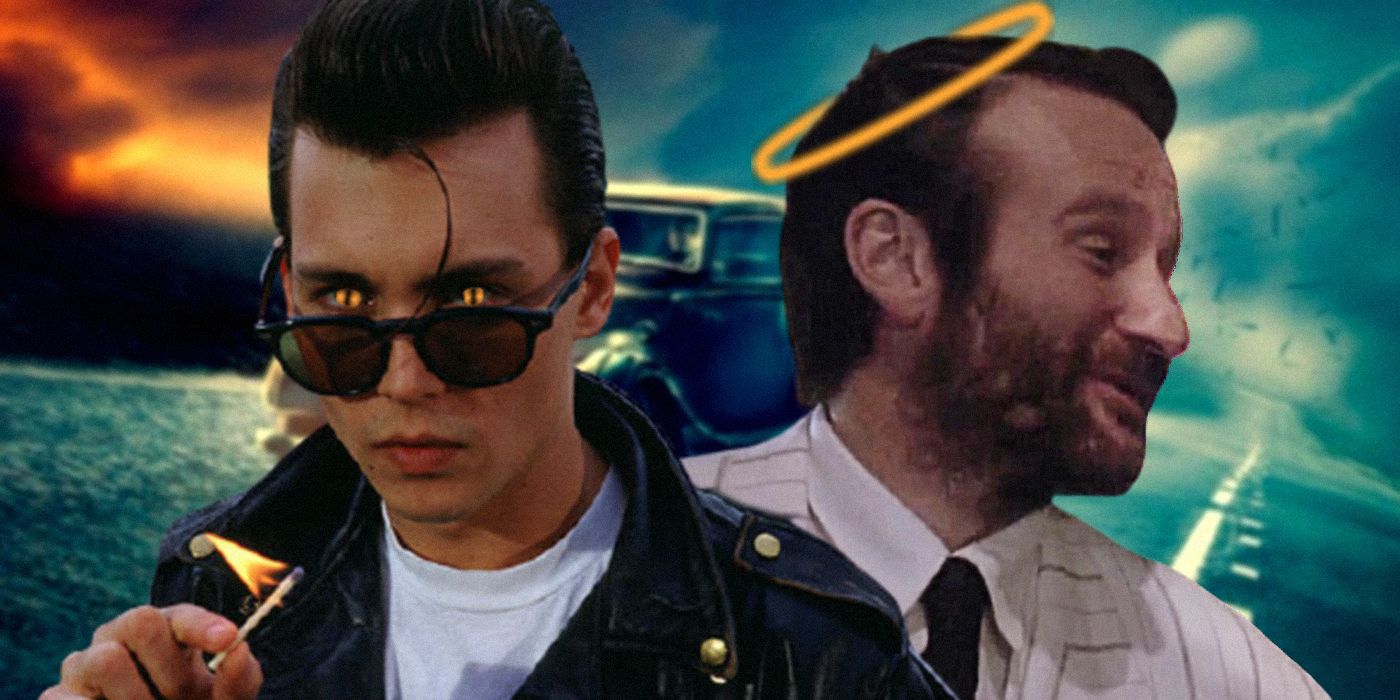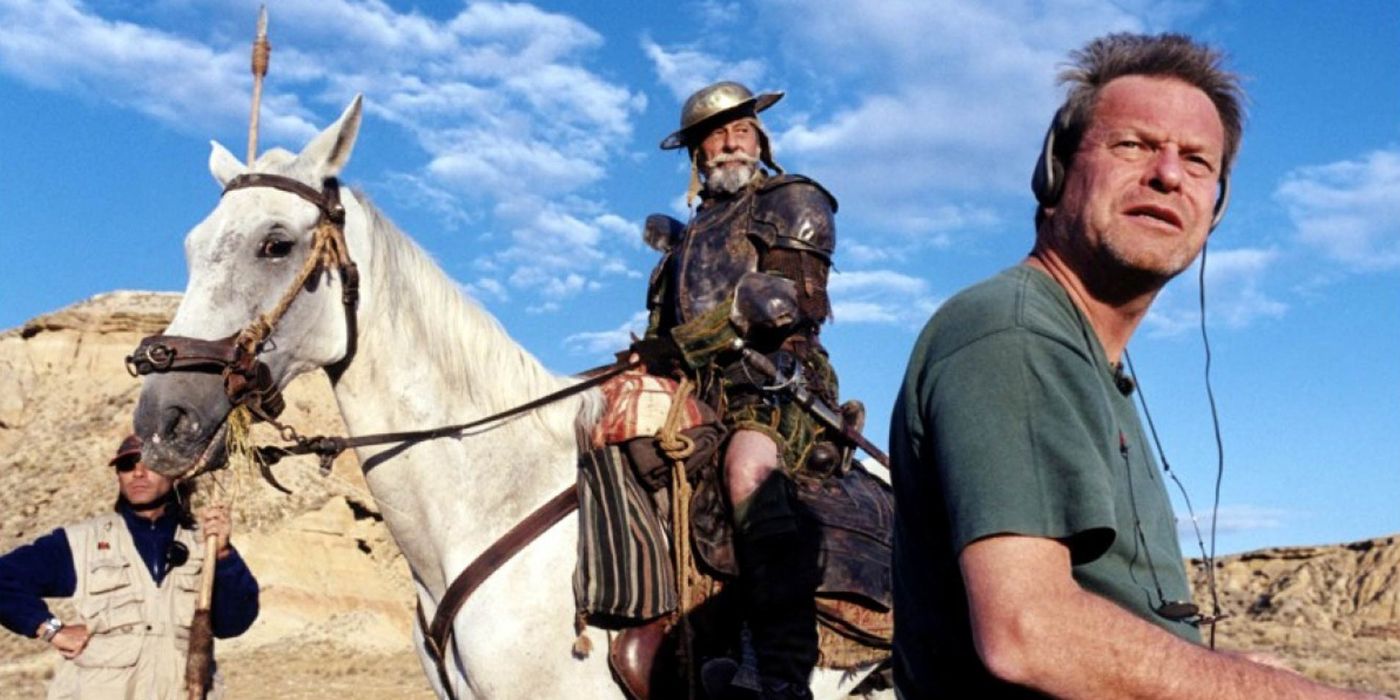Throughout the Nineties and early Noughties, Monty Python alum Terry Gilliam was set to adapt Good Omens; here’s the unmade movie, explained. Good Omens, the brainchild of writers Neil Gaiman and Terry Pratchett, is a comic fantasy novel concerning the end of the world — featuring the odd-couple pairing of the angel Aziraphale and the demon Crowley on their quest to prevent Armageddon. Released in 1990, the novel has since gained a cult following, with proposed (and subsequently canceled) adaptations setting internet forums ablaze for many years. While a TV adaptation finally saw the light of day in 2019, Terry Gilliam had previously tried to adapt Good Omens as a movie before funding issues brought the project to a halt.
Gilliam, a member of the Monty Python comedy troupe who directed their many animated segments, has gone on to have a successful feature film career — cultivating a surreal and, often, darkly comic directorial style on such projects as Time Bandits, Brazil, and 12 Monkeys. Upon completing Good Omens, Gaiman and Pratchett sent Gilliam a copy — noting that the novels’ comedic sensibilities owed a debt to Monty Python — and a meeting was arranged at London’s famous Groucho Club to discuss the prospect of a film adaptation [via TW].
Development on the screenplay began and, by the late '90s, Gilliam was said to be co-writing the film with his Fear and Loathing in Las Vegas collaborator Tony Grisoni. According to Neil Gaiman, Robin Williams and Johnny Depp (who had previously worked with Gilliam on The Fisher King and Fear and Loathing in Las Vegas, respectively) were considered to play Aziraphale and Crowley — a match made in cinematic heaven, if ever there was one. Sadly, development hell would ultimately claim the project, as Gaiman explained to TW: “He (Gilliam) had almost all the money he needed. Unfortunately, this was like three months after 9/11 and nobody was in the mood to hear about a really funny end-of-the-world comedy”. This, paired with Gilliam’s comments to Reel in 2001, wherein he described Good Omens as “the most expensive thing” he had ever done, gives a pretty good idea of why the project was relegated to the scrap pile.
Gilliam moved on — wrestling with his infamously delayed adaptation of Don Quixote (which was finally released in 2018 as The Man Who Killed Don Quixote) — before directing another fantastical buddy comedy, The Brothers Grimm, released in 2005. While there were talks of reviving Gilliam’s Good Omens throughout the 2000s, none of them resulted in a finished film. In 2011, Gilliam’s fellow Python Terry Jones was attached to adapt the novel as a television miniseries [via Neil Gaiman’s Journal], before that project, too, went the way of the dinosaurs. Good Omens fans would have to wait until 2019 to see a miniseries adaptation, but most would argue that it was worth holding out for — with Gaiman personally showrunning the project as one of Terry Pratchett’s final requests before passing from Alzheimer’s disease in 2015.
The 2019 miniseries, starring Michael Sheen and David Tennant as Aziraphale and Crowley, debuted to critical acclaim and an amusing “cancellation petition” — with religious organizations in the USA demanding that Netflix remove the show due to its comedic handling of religious themes, seemingly unaware that Good Omens was actually hosted on rival streaming platform Amazon Prime. Given that Monty Python’s Life of Brian had been met with similar religious uproar back in 1979, one would hope that Terry Gilliam was pleased with the final result — even if his own Good Omens dream was, like many a film project, over before it had truly begun.


